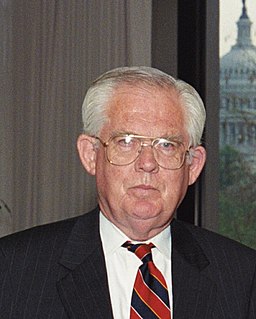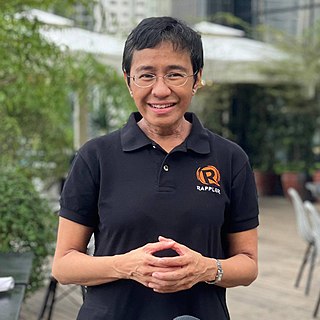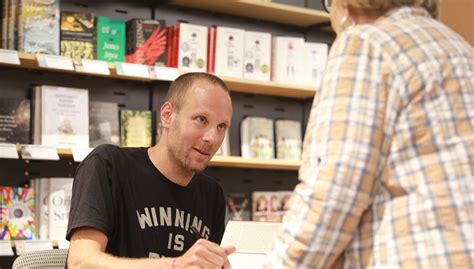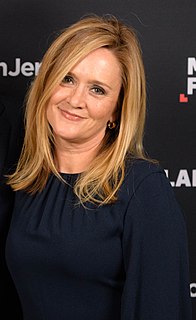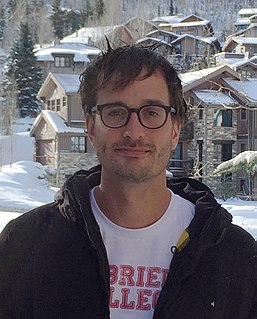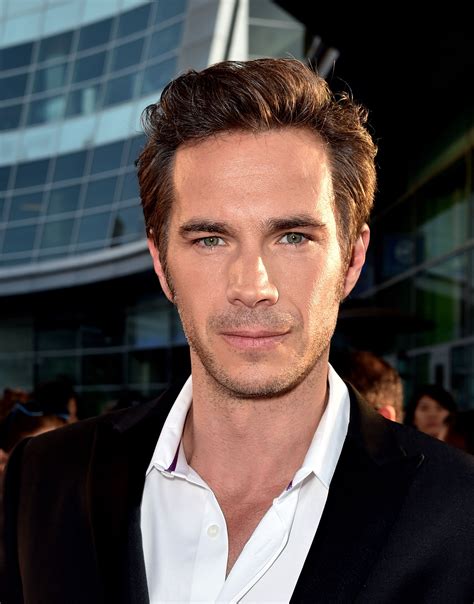Top 1159 Journalists Quotes & Sayings - Page 20
Explore popular Journalists quotes.
Last updated on November 21, 2024.
In Britain, journalists often view comparisons with our society going back two, three, or seven centuries as more relevant than comparisons going back two, three, or seven decades. Drunkenness centuries ago is more illuminating than comparative sobriety 30 years ago. The distant past, selectively mined for evidence that justifies our current conduct, becomes more important than living memory.
A lot of attention has been paid in Latin America to the new generation of nonfiction writers, authors like Julio Villanueva Chang, Diego Osorno, Cristóbal Peña, Gabriela Wiener, Leila Guerriero, Cristian Alarcón, among others. These are writers doing important, groundbreaking work. So the talent is there, as is the habit of radio listenership, and what we propose to do is unite the two. We want to have these immensely gifted journalists - men and women who've already revitalized the long-form narrative - we want them to tell their stories in sound.
Our government has become too responsive to trivial or ephemeral concerns, often at the expense of more important concerns or an erosion of our liberty, and it has made policy priorities more dependent on where TV journalists happen to point their cameras. . . . As a nation we have lost our sense of tragedy, a recognition that bad things happen to good people. A nation that expects the government to prevent churches from burning, to control the price of bread or gasoline, to secure every job, and to find some villain for every dramatic accident, risks an even larger loss of life and liberty.
We don't have the Democrats doing a Fox News debate. They have decided they want to boycott Fox News, at least this election cycle. I don't see Hillary and Bernie Sanders doing a Fox News debate. And they should. We have great journalists on this network. I'm an opinion person. It wouldn't be me - that I think would do a great job. But if they're not going to put themselves in an environment like this, do you have to now reconsider, in other words, going forward, that maybe these liberal networks don't deserve the access to these candidates?
On one occasion, Daniel Day-Lewis, Jeremy Irons and myself were due to appear at the Sarajevo film festival and were turned off a UN plane on orders from Geneva. We had to get local journalists to transport the films in for us. I tell you this only to demonstrate that festivals can be a lifeline. But, after all the difficulties I'd had in getting there, in 1996 I found myself being flown in on a four-seater RAF plane as an official guest, endorsed by the British Embassy. Ironically, the film I was to present was Mission: Impossible.
My upbringing was pretty interesting. It was a rigorous, intellectual upbringing, but with the idea that we were a part of an important and legitimate enterprise. What that meant was sitting around the dinner table from a really early age with people from all different backgrounds who believed in God. When I was reporting in the wake of September 11th in Iraq and elsewhere, I felt I had the capacity to talk to people whose beliefs might sound outlandish to more secular journalists. I felt like I could be a translator between those two worlds.
Here in the United States, we speak with reverence of authentic experience. We write poems about our daddies taking us fishing and breaking our hearts by making us throw the little fish back into the river. We even tell the reader the kind of car we were driving, the year and the model, to give the impression that it’s all true. It’s because we think of ourselves as journalists of a kind. Like them, we’ll go anywhere for a story. Don’t believe a word of it. As any poet can tell you, one often sees better with eyes closed than with eyes wide open.
Another riveting one was Sterling Sharpe - mainly because everyone told me he's horrible. Sterling was playing in a golf tournament in Lake Tahoe, and I drove up to see him (and others). I approached cautiously, figured he'd blow me off, etc. But, instead, he was fantastic. I mean, gracious, down to earth, funny, terrific memory, pinpoint insights. Could not have enjoyed my time with Sterling sharpe any more than I did. And how many journalists have ever said that before?
I've been a performer in the public eye for many years now and it's much darker. It feels so worse now. It feels heavy; it's difficult to deal with. The hatred is unbelievable, but I actually feel a lot more compassion for the journalists and people who aren't used to that. At least on some level, it's been a part of my world for a long time, so I can handle it. I'm not going to say that I'm used to it, because I'm not. I think it's really difficult for people who are just doing journalism and receiving death threats on a very consistent basis.
I think America is a really interesting place. In New Zealand, we don't sue each other really commonly. There's a really specific reason, like someone's arguing over a fence that's been put up that's too high. Sort of practical things. And journalists are rarely sued for things. Whereas in America, you have a culture where that's the first thing you do. There's an ongoing pattern here where if you've got money, you can bully other people into doing what you want them to do. You don't need to be in it to win, you just need to be in it to be a pest.
National security is a really big problem for journalists, because no journalist worth his salt wants to endanger the national security, but the law talks about anyone who endangers the security of the United States is going to go to jail. So, here you are, especially in the Pentagon. Some guy tells you something. He says that's a national security matter. Well, you're supposed to tremble and get scared and it never, almost never means the security of the national government. More likely to mean the security or the personal happiness of the guy who is telling you something.
I came to Paul at quite an early age, having already studied Plato and Aristotle; and I found Paul easily their intellectual equal, though he was handling these amazing questions about God, Jesus, Israel, faith and so on. He continues to be an amazingly stimulating thinker, especially when we try to understand the flow of thought in letter after letter rather than just combing him for a few verses on 'our favourite topics', which, sadly, some Christian teachers do just as some journalists and broadcasters do!
I respect journalism. I was always very aware of journalism from a very broad point of view, but I'd say my baptism by fire was doing the Donald Margulies play Time Stands Still. That for me was a real education because I spent a lot of time with some incredible journalists, war reporters particularly - Bob Woodruff, Dexter Filkins - people who were very helpful in painting the picture for me and reading the accounts of people and what they experienced, a lot of PTSD.
To journalists my move from comics to films to best-selling novels was resembling those little evolutionary maps too much, where you see the fish, and then it can walk, and then it's an ape and then it gets up on its hind legs and finally it is a man. I didn't like that. I didn't like the fact that there was something rather amphibious about me - at least in their heads - back when I was writing comics. So I like continuing to write comics, if only because it points out that I haven't just started to walk upright or left the water.
Donald Trump creates word salads. And that is awful to language, because we try to parse out what he's saying and try to find meaning in it. Journalists don't have a choice about reporting what the president says. I find the idea - "Let's not write about his tweets" - to be absolutely ridiculous. I mean, he's the president! Of course, we have to write about his tweets and look at what they mean. The problem is, they're hollow. But we don't have the option of ignoring what he's saying because he's president. That's damaging to language, and to journalism.
As I glanced at the phraseology of the research report, dull and unfathomable to outsiders like me, I thought that if you have the ambition to become a villain, the first thing you should do is learn to be impenetrable. Don’t act like Blofeld—monocled and ostentatious. We journalists love writing about eccentrics. We hate writing about impenetrable, boring people. It makes us look bad: the duller the interviewee, the duller the prose. If you want to get away with wielding true, malevolent power, be boring.
It's a lot of accumulated joy and tension and all kinds of emotions just pouring out of all us. We've all been preparing for this day and we all knew that one day we would just have to move on with our lives and careers even though we all love this show and love working together. But it's still an incredibly emotional time, especially for me with a lot of journalists asking me how it feels about FRIENDS coming to an end. It's started to make me think very deeply about what it's all meant to me and that's made me ever more emotional!
I think our primary function is to create the strongest, deepest, most interesting news report there is in the world.And whether it's on the front page of the newspaper or leading the home page doesn't really matter. We reach a huge audience on the Web. And really, you know, the journalists, whether they are reporters or editors or Web producers or multimedia specialists, we're all creating, you know, the journalism that is the bedrock of our news report. And that's true for the newspaper, the Web, our apps, and you name it.


